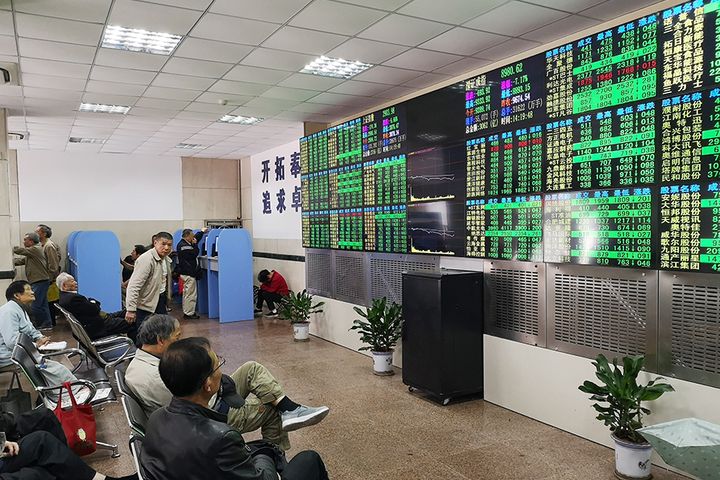 Shanghai Bourse Halts Some Futures Trading After 5.6% Nosedive
Shanghai Bourse Halts Some Futures Trading After 5.6% Nosedive(Yicai Global) May 7 -- The Shanghai Stock Exchange has suspended the trading of 50 exchange-traded fund option contracts that mature this month after the eastern Chinese city's main index plunged 5.6 percent yesterday. The Hong Kong Growth Enterprise Market Index also slumped by around 8 percent.
Many investors believe the move indicates that short-selling of index futures was a key factor in the decline, considering that regulators most recently loosened controls on such trading on April 22 and lowered transaction fees.
The move was actually unrelated to yesterday's market plunge and was the result of the contracts' trading volume hitting a certain threshold to warrant a suspension.
The control system is triggered when the share number of the SSE's 50 ETFs' open interest contracts in a month reach or exceed 75 percent of the total number of circulated shares, in accordance with regulations. Trading will resume on the next trading day when the ratio drops below 70 percent.
Normally index futures are a strategy to protect long positions on the stock market. Though they have little effect on China's A-shares in the medium and long-term, they do boost momentum in the short-term since shares are highly volatile and speculative, and investors mainly adopt momentum investing.
"One condition following the black swan event was to hedge to protect long positions that hold stocks via short-selling a commodity," a market source told Yicai Global last night. "The other is a net short position that doesn't hold any stocks. For example, investors can still gain via short-selling when the stock market opens low."
The stock index futures accelerated the falling of stock prices in momentum investing, he added.
The market is more concerned about whether loosened regulations and access for foreign investors to futures will provide a way for foreign funds to manipulate indexes, and even lead to sharp fluctuations.
"The financing structure and function of stock index futures excludes the possibility of affecting the spot market by suppressing derivatives," the asset manager at a Shanghai-based futures company told Yicai Global.
Short-selling mainly comes from the demand for hedging transactions while the regulator doesn't allow net short positions and restricts the amounts, the interviewee added.
Editor: Liao Shumin